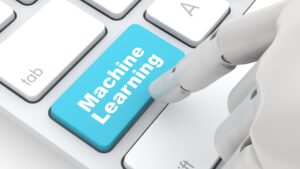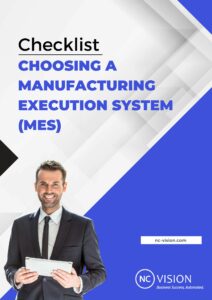
In a world with challenges in digitalization, global supply chains and sustainability it gets more and more undisputable that manufacturers are using the right Manufacturing Execution System (MES).
What is an MES?
Gartner defines manufacturing execution systems as a specialist class of production-oriented software that manages, monitors and synchronizes the execution of real-time physical processes involved in transforming raw material into intermediate and/or finished goods (Gartner Magic Quadrant for MES)
With the full focus on Manufacturing MES a key element for process and discrete industries besides product life cycle management (PLM) and enterprise resource planning (ERP) systems to manage a manufacturing company.
What are the Benefits of a Manufacturing Execution System (MES)?
Production and process management, managing the full production process from the beginning to the finished good. Ensures, that process steps are performed in the correct order at the right time in accordance with quality requirements.
🡪 This decreases downtime, increases quality, and ensures compliance with regulations.
Resource- and work management, ensures that all resources materials and workforce are available and tracked in the production process
🡪 Decrease downtime, reduce inventory and cost and maintain sustainability.
Analysis and tracking of performance and products, all production data and related data are tracked in the MES system. So, everything is traced and can be tracked before, during and after the production process. This also allows a sophisticated maintenance management within the manufacturing process
🡪 This allows to meet sustainability goals, reduce waste, decrease downtime and at the end reduces production costs.
Integration ERP, PLM, SCADA, PLC and Sensors, a key success factor to achieve Digitalization, transparency in the manufacturing, and at the end a “Digital Twin” of the production process is the ability to integrate into different corresponding systems from ERP down to PLC and sensors.
🡪 Enable full Digital Twin & agile manufacturing, reduce cost, increase quality.
What kind of vendors are in the market for manufacturing execution systems (MES)?
Gartner classifies the vendors in the MES market into 2 categories: Enterprise Software vendors and Pure-play vendors.
Enterprise Software vendors are vendors which come from different industry software areas like ERP (SAP, Oracle); PLM (Product Life Cycle Management (Siemens, PTC, Dassault Systems), or Automation (ABB, AVEVA, GE, Rockwell, Honeywell).
Pure-play vendors are focused on manufacturing execution or manufacturing operation management (MES/MOM) capabilities such as MPDV, Separsoft, Parsec, Tulip and NC-Vision.
These vendors follow more of a “Best-of-Breed” approach while the enterprise software vendors want to provide everything out of one hand.
What are the key differentiators you should consider choosing an MES/MOM solution?
In the the MES Comparison Matrix below you will find a full set of criteria and checkpoints to consider when choosing a system.
We want to focus on the following 5 points as we consider them as “key criteria”.
Composable: In the last years we see a strong trend from traditional application architectures (mostly monolithic) to composable applications.
Composable applications are modular, and customers/end-users can build (compose) their MES solution out of different MES application individual based on their needs and requirements.
In addition, application composition platforms offer stable APIs and common interfaces to make the system and the solutions highly customizable, adaptable, and extendable into existing customer IT and manufacturing infrastructure.
Technology Platform: It is important to choose a vendor with a modern technology platform to ensure the agility and flexibility of your MES solution.
The state-of-the-art these days are No/Low Code environments which allow the users to compose their applications fast, flexibly based on their individual needs and requirements with fewer costs and risks.
No/Low Code environments also help companies to mitigate the risk of the worldwide shortage of hiring full-time IT and Developers as they can be used by skilled personnel called “Citizen Developers”
Microsoft predicts that in the next 5 years 90% of all applications will be designed and built via No/Low-Code platforms.
Extendibility: We all know that each company has specific needs and requirements for its manufacturing and production process which need to be supported by the MES. The systems need to be highly customizable and extendable. Adoptions and extensions into existing IT, software, or machine infrastructure should be possible agile and flexible and should be a matter of days, not weeks or months.
Roll-out of a management execution system should be a matter of days max. 4-8 weeks to ensure the ability to react fast to changes, and modifications in the manufacturing process.
Total Cost of ownership (TCO), considering an MES it is important not just to have a look at the software license cost but also the hosting, Training, customization, and the cost of extending and modifying the MES solution should be taken into account.
As it is not unusual that the Services costs for Training, customization and development of modifications and extensions on the systems exceed the software license costs by far.
Below you will find a detailed Checklist including a comparison of NC-Vision with other MES vendors like Tulip, Siemens Mendix, SAP, GE, Rockwell, AVEVA and MPDV.
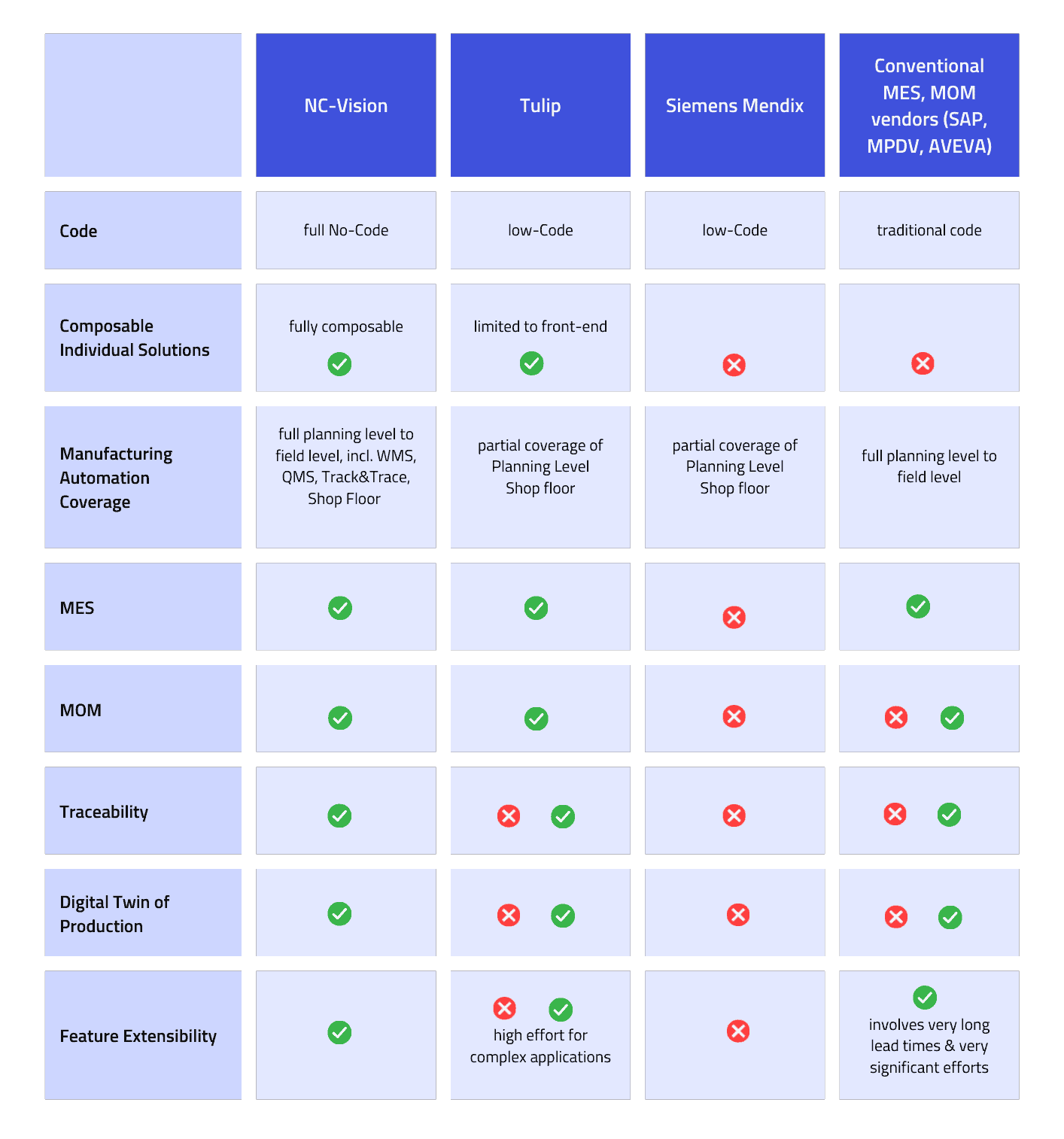
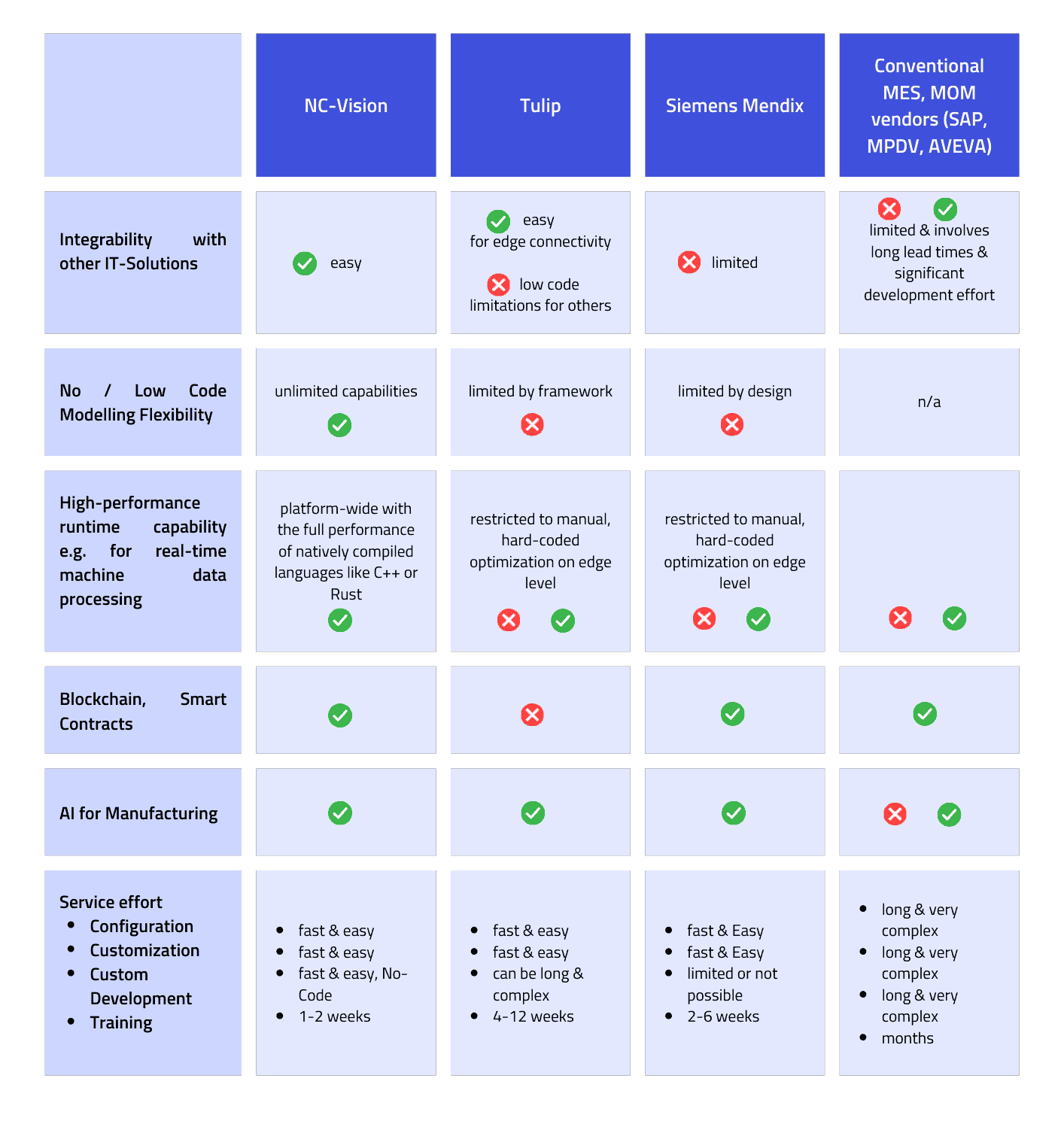
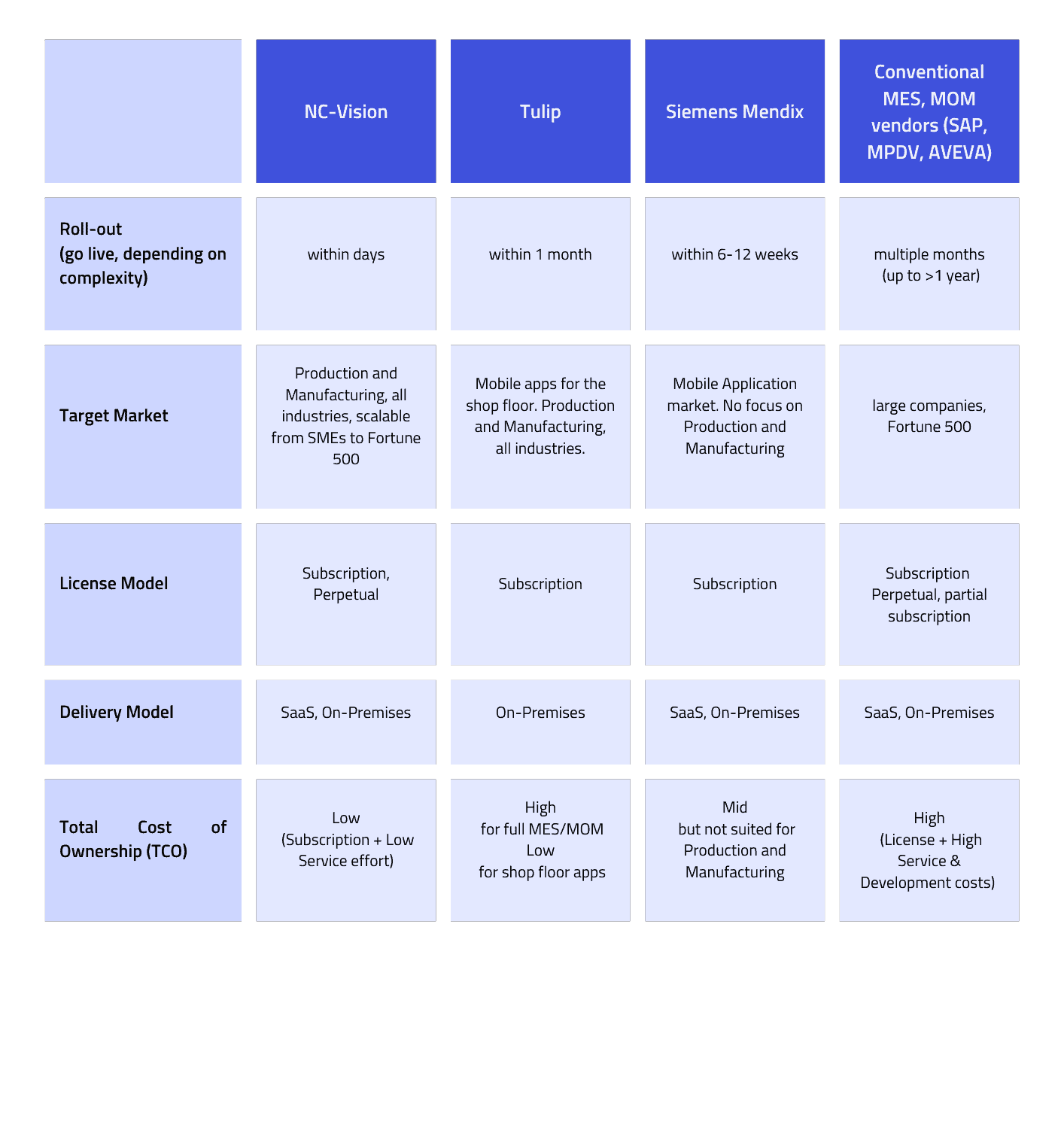
Compose Your MES Solution in only 30 minutes.
We’ve compiled this MES checklist to help you get started. Choose what works for you, add any requirements you have.










